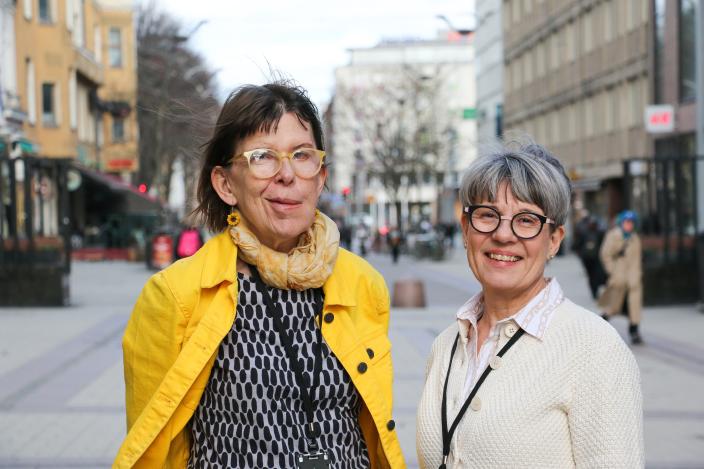Within the Turku employment region, local services are provided in nine municipalities, but certain services have been centralized in Turku. Centralisation ensures that psychology services are equally available in the different locations around the employment region, for example.
In the Turku employment area, certain services have been centralised because they require special expertise or in-depth knowledge of legislation, for example.
“The idea is that municipalities providing locally accessible services do not need to disperse the competence of their employees for matters that are not common in everyday life,” says Ullakaisa Nieminen, Director of Employment Services.
Some centralised services are direct customer service, such as career planning, telephone services and payment of benefits. Some are support services, such as internal training and event production support. Seafaring employment services are offered nationally.
The 23 municipalities in the employment region have decided together which services will be centralised in Turku. Nieminen emphasises that centralised services support local services and are intended for customers in the entire employment region. The aim is to make services as easy to use as possible.
“The basic principle is that we move to the municipalities providing locally accessible services. We also provide services remotely, over the phone and through our online service”.
New direction from career planning
Vocational guidance and career planning is one of the centralised services in the employment region. It is offered by 12 psychologists. The idea is to help people find a job or educational path that suits them.
The counsellor talks with the customer about their work history, educational background and expectations and assigns homework or tests that clarify the customer’s choices, if necessary. Guidance may include work or training trials or health examinations.
“Guidance does not only help choose a profession. It requires understanding of the customer’s overall situation, taking into account their life situation and health. Multisectoral cooperation is often needed,” says psychologist Taina Aaltonen.
Taina Aaltonen and Ullakaisa Nieminen work in services centralised in the Turku employment region. Nieminen keeps things under control in the entire region of responsibility, and Aaltonen acts as a psychologist in vocational guidance. Photo: Heidi Pelander.
The customers of the employment region’s psychologists look for a new direction in life after long-lasting unemployment, when they are close to graduation, when their studies are interrupted or because of health issues, for example.
The psychologists visit the customers or meet them remotely 3–5 times on average. Typically, there is a queue of 1–3 months for the service. You do not need to be a customer of employment services to receive guidance.
According to Aaltonen, trust and good interaction with the customer are the cornerstones of vocational guidance. Guidance is voluntary and it is important that the customer themself wants to talk about their situation and options.
“If a person is feeling low, their motivation might be quite weak, but if there is even a small spark of interest, it can lead to something greater.”
Better service through cooperation
Aaltonen finds it sensible to centralise vocational guidance and career planning services. Customer cases are diverse, and in tricky situations, colleagues’ experiences and knowledge are often helpful.
“We are also jointly responsible for the customers. Every location has a psychologist dedicated to it, but if someone has too many customers, the others will help.”
In the future, Ullakaisa Nieminen hopes that cooperation between centralised services and municipalities providing locally accessible services will be further strengthened. She thinks it would be great for the information related to the municipal start-up grant or pay subsidy policies, for example, to flow as seamlessly as possible.
Nieminen also hopes for more versatile methods to monitor the effectiveness of employment services. She knows that municipalities also need detailed information.
In Taina Aaltonen’s work, it is difficult to measure impact by numbers. It is rewarding to see how the guidance process makes the customers think and helps them see their strengths.
“It is also valuable if at the end of guidance, the customer leaves feeling even slightly more empowered.”
1) Guidance and advisory services: Vocational guidance and career planning, centralised telephone services, multisectoral service coordination tasks, internal unemployment security and system training, and support for service and event production.
2) Education and recruitment services: Planning and management of training and coaching, maritime employment service, transition security and international employment services and recruitment.
3) Support, assistance and compensation services: Pay subsidy, start-up grant, subsidies, compensation and payment of benefits.
The Turku employment area consists of 23 municipalities and nine operative locations. They are located in Kaarina, Laitila, Lieto, Loimaa, Paimio, Raisio, Parainen, Uusikaupunki and Turku. Centralised services support local services in the employment area and are intended for all customers in the employment area.

